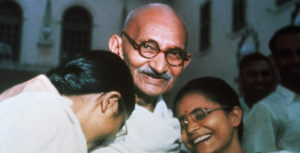Today marks the moment, 63 years ago, that France finally ceded control of Algeria. But speak to many in both countries and the war might have finished yesterday, with tensions between Paris and Algiers now higher than they’ve been for …
The new Sino-Indian War
Expect bloodshed. The opening salvos have been fired between India and China in Asia’s bizarre Historikerstreit. Its instigators, strangely enough, are two British historians — Peter Frankopan and William Dalrymple — who substantively agree with one another. Not that this …
The end of Lebanon’s French connection
A day after the Beirut port blast shattered the city in August 2020, Emmanuel Macron arrived in Lebanon as a self-proclaimed saviour. Like JFK in West Berlin, or Fidel Castro in post-revolutionary Havana, the French President toured the streets. Thronged …
The colonial hypocrisy of Japan
Because the first half of the 20th century is thought of in the West as an era of imperial decline, it’s easy to forget that, in these decades, there was one nation whose empire was fast expanding. Japan was on …
Israel’s enemies are blinded by the sins of America
The Nagorno-Karabakh region, between Azerbaijan and Armenia, has been the source of repeated, bitter fighting since the Nineties. A few weeks ago, following nine months of Azeri blockade of the majority-Armenian civilian population, Azerbaijan launched an offensive against the region. …
Anti-racists are patronising Africa
Why are some groups of people in a weaker position than others? Because, today’s progressives argue, a stronger group put them there, and is acting to keep them there, consciously or subconsciously. According to this narrative, the responsibility for eliminating …
How France lost control of Gabon
Gabon fulfils all the stereotypes you might have about the west coast of Africa. Brutal, kleptocratic dictator whose family have been in power for over 50 years? Tick. Highly corrupt political system that facilitates large multinational companies to pillage, rob …
Niger and the collapse of France’s empire
First, there was Mali; then came Burkina Faso. Today, in the epic saga that is the anti-Western revolt sweeping across the Sahel, it is the turn of Niger to play the protagonist — the third country to suffer a coup …
Ukraine has exposed the EU’s nationalism
Over the past decade, and especially since the political shocks of 2016, there has been an increasing tendency to see both domestic and international politics in terms of a set of binary opposites: democracy and authoritarianism, liberalism and illiberalism, internationalism …
What’s wrong with cannibalism?
“I ate his liver with some fava beans and a nice chianti,” whispers Hannibal Lecter, before making that scary teeth-sucking noise. But what makes Lecter our favourite moral monster is not that he eats people; it’s that he gruesomely murders …
Why Africa welcomed the Wagner Group
“A phased shift is happening in the world. And it’s a good thing.” That is Yevgeny Prigozhin’s bullish assessment on Telegram of the Wagner Group’s growing impact on the Global South. Under his leadership, the quasi-private mercenary force has quickly …
Who is winning the scramble for Africa?
Reports of violence breaking out in Africa rarely raise eyebrows in the West these days. Perhaps we feel it has little to do with us, whatever the West’s historical responsibilities for the continent’s problems. But as the recent events in …
The imperialist who understood India
James Mill’s reputation has fallen on hard times. Few will mark the 250th anniversary of the distinguished historian and colonial administrator’s birth by laying bouquets on his grave. Those who have studied him are more likely to show up today …
George Osborne’s sordid Elgin plan
From the very beginning, Elgin’s removal of the Parthenon’s statues and friezes caused something of a discursive British civil war. On one side were humanists, like Lord Byron; on the other were Empire apologists, who defend Elgin’s actions and support …
Gandhi hasn’t aged well
Gandhi, poor fellow, had his ashes stolen on the 150th anniversary of his birth. “Traitor”, scrawled the Hindu supremacist malcontents on a life-size cut-out of the Mahatma at the mausoleum. That was a couple of years ago, but it’s a …
















